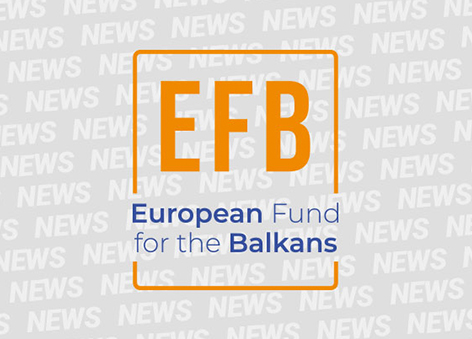EFB Working Breakfast on “The Refugee Crisis and the Consequences on the Western Balkans”
[dt_divider style="thin" /]
"The European Union is facing a very challenging problem, produced by the increased number of illegal migrants at its borders. This pressure is distributed unevenly among the Member States. Today, only five countries receive 70% of the asylum-seekers. Further on, pressure on EU borders is increasing daily, while EU policy makers are running in circles. As a consequence, individual Member States are resorting to their own ad hoc policies and threatening with brusk and unorthodox measures. They range from mild, such as issuing travel documents for illegal migrants for entrance into EU (Italy), to drastic, such as walling off their borders (Hungary). If the EU allows the placing of walls on the path of this river made of people, then at the EU border, water will swell and flood the whole Western Balkans.”
This excerpt is one of the conclusions of the European Fund for the Balkans' issue paper on migration, “Fortress Europa and the Western Balkans as its soft underbelly”, written by the public policy analyst and crisis expert Sanel Huskic from Bosnia and Herzegovina.
The in-depth analysis was presented to a selected number of representatives of the government of the Republic of Serbia, diplomatic missions in Serbia, international organisations, academia, think tanks, civil society organisations and media, during the Working Breakfast on “The Refugee Crisis and the Consequences on the Western Balkans”, organised in Belgrade on 6th of October.
In regard to the prevailing topic, the Executive Director of the European Fund for the Balkans, Hedvig Morvai, explained that this is the right moment for the Western Balkans to show a different face of the region, offering input on policy and recommendations emanating from civil society representatives.
“The refugee crisis is a great challenge for the Western Balkans, as it is for the EU, since both sides are affected and involved in this matter. We should all be engaged in finding ways to soften the blow of this huge migration process and support the best possible scenario for dealing with the presented crisis. In regard to the work of the Fund, we act through our Balkans in Europe Policy Advisory Group, which gathers various experts from the EU and WB, who try to address their policy recommendations to the centres of power in order to push the process of solving pressing problems like the refugee crisis."stated Morvai.
This overview of EU migration policies and their consequences on the Western Balkans showed that the EU is inherently slow with its decision-making processes with the respect to migration questions.“
“This will have to be addressed immediately in order to avoid greater disaster that is inevitable with the current conduct of individual Member States. The EU Member States, the Western Balkan States and the illegal immigrants need a silver bullet policy that will solve this problem instantly. The very first step would be to treat all illegal migrants as legal migrants and/or redistribute current migrants evenly among all 28 States." said Sanel Huskic.
He listed three possible scenarios for the refugee crisis -- status quo, closing the borders and opening the borders -- and claimed that only the latter is considered as reasonable and in-sync with all the EU signed and agreed conventions and declarations. As for the Western Balkans, Huskic believes that all the Western Balkan countries should unite their resources to overcome the negative effects of the crisis across the region, which serves as a main transit route on the refugee’s path to the EU.

